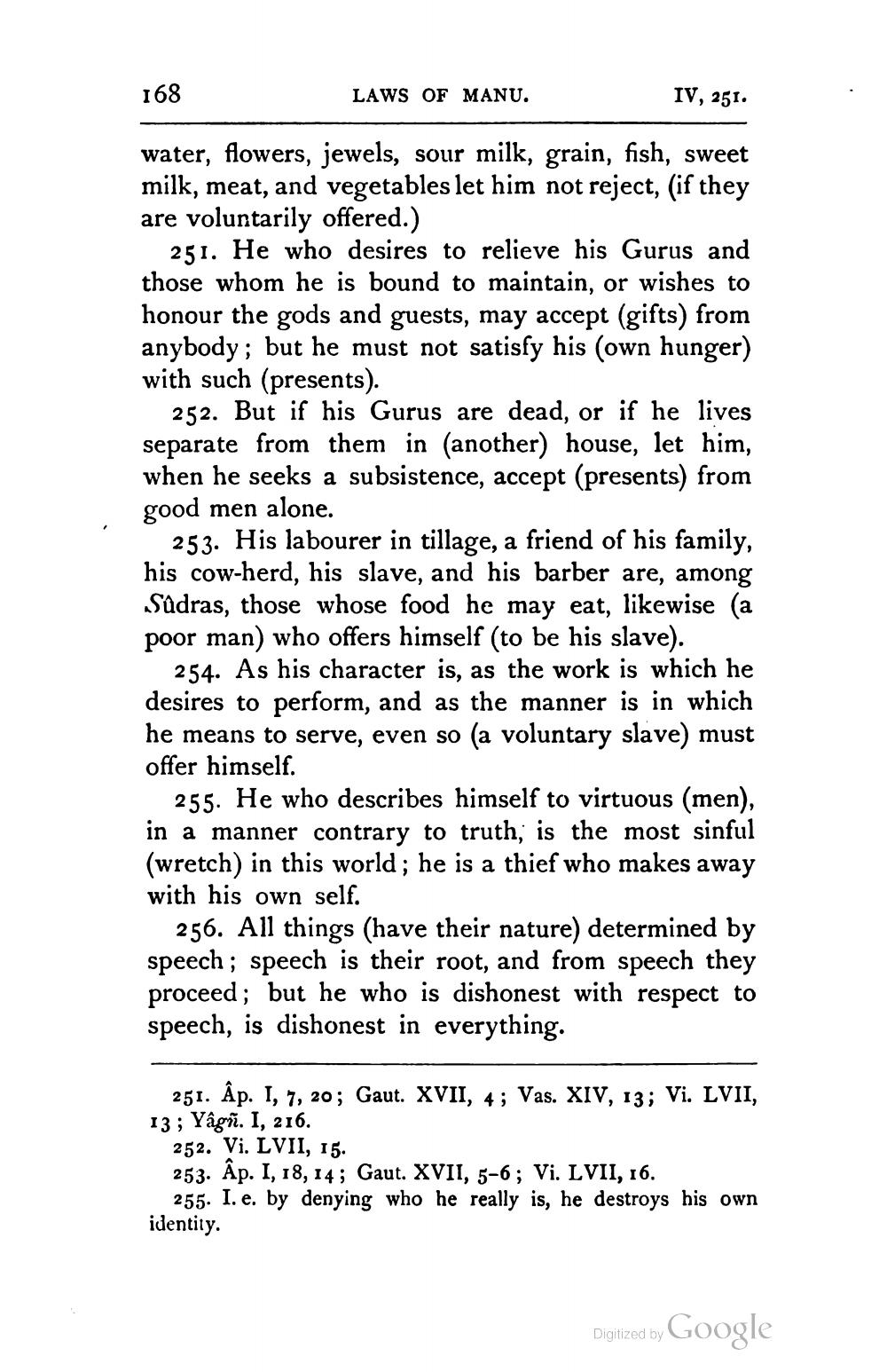________________
168
LAWS OF MANU.
IV, 251.
water, flowers, jewels, sour milk, grain, fish, sweet milk, meat, and vegetables let him not reject, (if they are voluntarily offered.)
251. He who desires to relieve his Gurus and those whom he is bound to maintain, or wishes to honour the gods and guests, may accept (gifts) from anybody; but he must not satisfy his (own hunger) with such (presents).
252. But if his Gurus are dead, or if he lives separate from them in (another) house, let him, when he seeks a subsistence, accept (presents) from good men alone.
253. His labourer in tillage, a friend of his family, his cow-herd, his slave, and his barber are, among Sudras, those whose food he may eat, likewise (a poor man) who offers himself (to be his slave).
254. As his character is, as the work is which he desires to perform, and as the manner is in which he means to serve, even so (a voluntary slave) must offer himself.
255. He who describes himself to virtuous (men), in a manner contrary to truth, is the most sinful (wretch) in this world; he is a thief who makes away with his own self.
256. All things (have their nature) determined by speech; speech is their root, and from speech they proceed; but he who is dishonest with respect to speech, is dishonest in everything.
251. Ap. 1, 7, 20; Gaut. XVII, 4; Vas. XIV, 13; Vi. LVII, 13; Yâgñ. I, 216.
252. Vi. LVII, 15. 253. Ẩp. I, 18, 14; Gaut. XVII, 5-6 ; Vi. LVII, I6.
255. I. e. by denying who he really is, he destroys his own identity.
Digitized by Google




